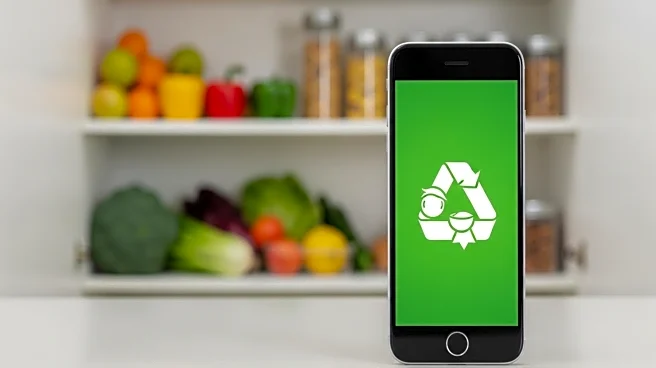What's Happening?
Several apps have emerged to help American families reduce food waste and save money. According to the US Environmental Protection Agency, a typical family of four loses approximately $1,500 annually due to food waste. Apps like Too Good to Go, Oh A Potato, Olio, and Flashfood offer solutions by connecting users with local businesses and neighbors to purchase discounted food or share surplus items. Too Good to Go allows users to buy leftover food from restaurants at reduced prices, while Oh A Potato helps users plan meals using ingredients they already have. Olio facilitates the sharing of food and non-food items within communities, and Flashfood connects users with grocery stores offering discounts on near-expiry products. These apps aim to reduce waste and promote sustainable consumption practices.
Why It's Important?
Reducing food waste is crucial for both economic and environmental reasons. The financial impact on families is significant, with potential savings of up to $1,500 per year. Additionally, food waste contributes to environmental issues, including increased greenhouse gas emissions from decomposing food in landfills. By utilizing these apps, families can not only save money but also contribute to broader sustainability goals, such as the US 2030 Food Loss and Waste Reduction Goal. This initiative aims to halve food waste by 2030, promoting more efficient use of resources and reducing the environmental footprint of food production and consumption.
What's Next?
As awareness of food waste grows, more families and businesses are likely to adopt these technologies, potentially leading to widespread changes in consumption habits. The success of these apps could encourage further innovation in the sector, with new features and integrations that make it even easier for users to minimize waste. Additionally, increased participation in programs like the US 2030 Food Loss and Waste Reduction Goal could drive policy changes and incentives for businesses to reduce waste.
Beyond the Headlines
The rise of these apps highlights a cultural shift towards sustainability and responsible consumption. As more people become conscious of their environmental impact, there is potential for broader societal changes, including increased demand for sustainable products and practices. This shift could influence industries beyond food, encouraging more businesses to adopt eco-friendly practices and technologies.









